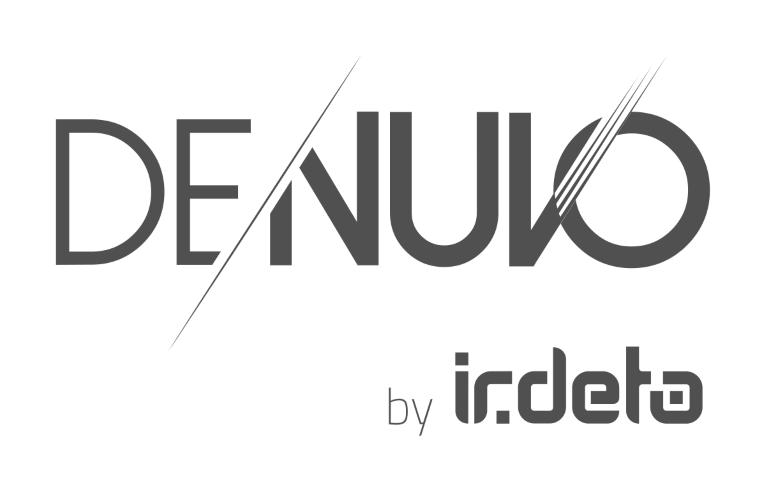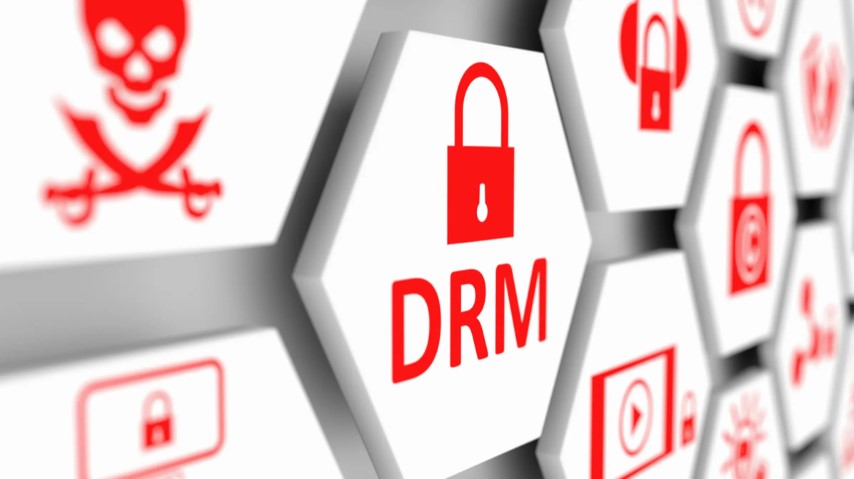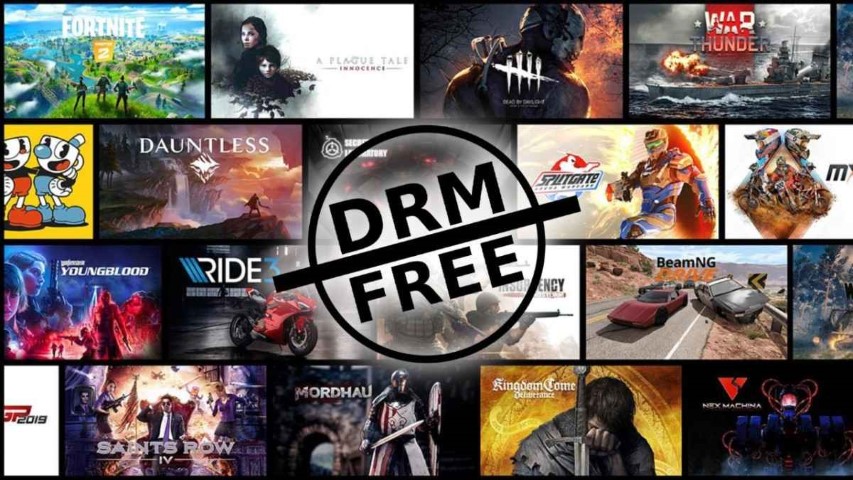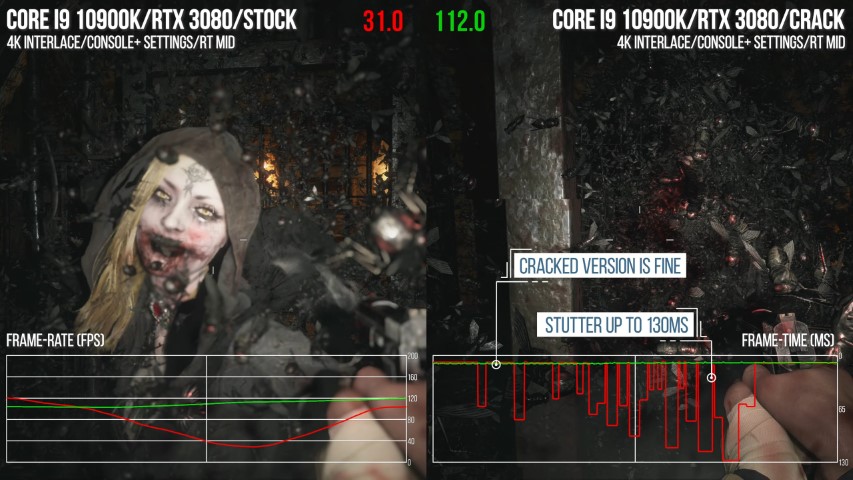
Today we will be taking a look at why modern digital rights management (DRM from now on) are bad for PC Gaming long term, as well as ways to mitigate the problems it presents.
Something important before we begin – I will be referencing mostly Denuvo, but there are other similar DRM types out today which also have the same problems or even worse. I use it as the popular poster child – but it is not the only DRM in town!
But what is DRM in games?
Digital rights management (DRM) is the management of legal access to digital content. Various tools or technological protection measures (TPM) like access control technologies, can restrict the use of proprietary hardware and copyrighted works. DRM technologies govern the use, modification and distribution of copyrighted works (e.g. software, multimedia content) and of systems that enforce these policies within devices. DRM technologies include licensing agreements and encryption.
-Wikipedia
DRM exists to make sure that legal software owners can make use of the software they paid for / obtained via official channels, while making sure pirates or other more malicious users or illegal ways to obtain said software do not take place.
Video games are quite complex and in the modern PC Gaming scene we have several popular ways to tackle Digital Rights Management. The current champion is Denuvo or Denuvo-like pieces of software that authenticate the bought copy and make it very hard (but not impossible) to crack or circumvent these measures. What are the issues with this otherwise understandable or even to some extent noble goal?
Performance – Denuvo has a CPU impact.
This point has been beaten to death but it is still worthy of mention. Denuvo has a CPU impact. Every time it has to run its checks during gameplay, it incurs a performance penalty. In modern, well implemented versions of the DRM it is a minor impact, but it is always there.
Let’s give the devil his due - Denuvo and Denuvo-like forms of DRM are not the only reason why certain games perform poorly. As much as I dislike these types of DRM, I must be fair here – developer incompetence is usually the far, far bigger problem plaguing modern releases. But having Denuvo on top of all that is not helping paying customers.
I'll link the Digital Foundry benchmark here above. Capcom's official DRM had also had an impact on performance for this benchmark. An example of strictly Denuvo causing issues is Guardians of the Galaxy, which runs very well in most situations aside from CPU intensive areas which can and will impact users, especially those with weaker processors, to some degree.
Yes, the dude with the super powerful Ryzen 7800X3D will be fine. His CPU will just plow right through any DRM checks in almost all instances. But the person stuck on an older Ryzen 2600 or core i5 8400, this added CPU load will make things even worse. And modern gaming is already a technological/engineering catastrophe as it is.
The sword of Damocles hanging above game preservation.
I believe that video games are an art form and as such they should be treasured and preserved. The way Denuvo works is that it requires an internet connection to create validation tokens for the given video game from time to time. Now, offline modes still work with this but only for a time. The game will eventually demand an internet connection to validate with Denuvo’s servers else it will just refuse to run.
Let’s say something happens to Denuvo and its servers go down. This means that the games we have purchased becomes useless without some manner of circumventing this DRM. Now add to this other sort of wacky DRM like a machine activation limit (which limits how many different computers can launch the game within 24 hours) and we have a situation where the consumer has even less control over their games.
Game preservation is an important topic and it is honestly sad that pirated copies of video games is what will preserve some of great games for the future. There is something super rotten about buying a piece of art and not being able to even protect it on your own end, long-term. Remember too, most game companies or publishers are not really very interested in conserving the past, which is unfortunate.
Preserving old games is only possible once DRM is out of the picture or irrelevant.
Also, these aforementioned forms of DRM hurt Steam Deck and Proton users -they now need always select the proper Proton layer if they want optimal performance. Which is doubly annoying in cases where we also have a machine activation limit – since any Proton layer change is seen as a new computer… making it impossible to play your games on such a machine for a day or two (sometimes) or annoying tedious work at the very least.
Loading times
I decided to add this here as a separate part. DRM can impact loading times in modern games. Just like the CPU part, loading times with always be impacted. Unlike the CPU part though – sheer PC performance can’t almost wholly negate this one. Or to make things simpler – the impact on loading times will be quite bad on low-end PCs and noticeable even on high-end machines.
Lack of Control
Game preservation and performance are objective issues for sure. I do not think anyone would ever try to argue elsewise. However, there is another issue I have with modern DRM methods.
No control over what I paid for.
Now I understand certain limitations being imposed. Buying a book and then selling copies of it is just … not right. We all intuitively understand that as humans. But buying something and knowing DRM can be added to it at any point in time or have access revoked? Something is not quite right here and it needs to be examined properly.
Also, I am a big fan of modding and it should be noted that DRM can actually limit this feature to some degree. It is not an inherent issue for DRM though, and there are examples of games with aggressive DRM that still have a nice level of mod support – but it is something that could be an issue with more ambitious mods (especially).
Older DRM methods were even worse – but we should not just accept mediocrity because of that!
One of the defenses I once heard for modern DRM is that previous era methods of DRM such as for example Starforce… were even worse.
And you know what? They are correct. Some of those things were even more draconian, offered even less control or were allegedly even capable of wearing out hard drivers or hardware in general.
But just because something was worse in the past does not mean we should settle with something being mediocre or bad right now. We can do better and should expect better!
A compromise?
Ultimately, I just do not like Denuvo or DRM in general. I do not believe it actually stops piracy but that is a topic for another time, as it is nuanced and complicated. The fact is – publishers and some developers force this down gamer’s throats on PC and it is objectively a worse experience for paying customers. How much it does vary, but it is never actually a superior experience due to DRM. However, they are not likely to stop. So here is a way for everyone to be happy:
- Release the game with the chosen DRM method as the publisher demands. Do make sure it is well implemented though so the performance impact is not too noticeable and do not use other DRM methods alongside it. That never ends well.
- Leave it on if the game is expected to have DLCs and Expansion Packs.
- Once all expansions or DLCs are out and the game is cracked by a piracy group – remove it. There is no reason to still have it in the game – release a patch that removes this DRM.
- If the game has not been cracked but all the expansions and most of the money has been made – wait a few more months and remove Denuvo after that. It is a nice gesture of goodwill; you will get a bit of positive PR and the game now has a better shot at immortality. Plus, the people with low-end machines who buy titles at 60% sales on Steam or Epic will encounter fewer performance issues and this will slightly raise the game’s positive reception long term. Which means the passive income from this title will be a bit higher.
A very extreme example above^ not the normal but it has happened before once you mix several types of DRM…
The plan I outlined above will leave everyone happy. Publishers will believe they managed to guard their game from pirates during its first weeks or as its DLC or Expansion packs roll out. Gamers will know that long term the game will run that tiny bit better and won’t be mortal due to Denuvo. Game developers will have done right enough by their consumers and their publisher too.
*Many thanks to Denuvo Alerts on Twitter and Boredgunner from GND-Tech for help with research on this topic
The articles content, opinions, beliefs and viewpoints expressed in SAPPHIRE NATION are the authors’ own and do not necessarily represent official policy or position of SAPPHIRE Technology.























